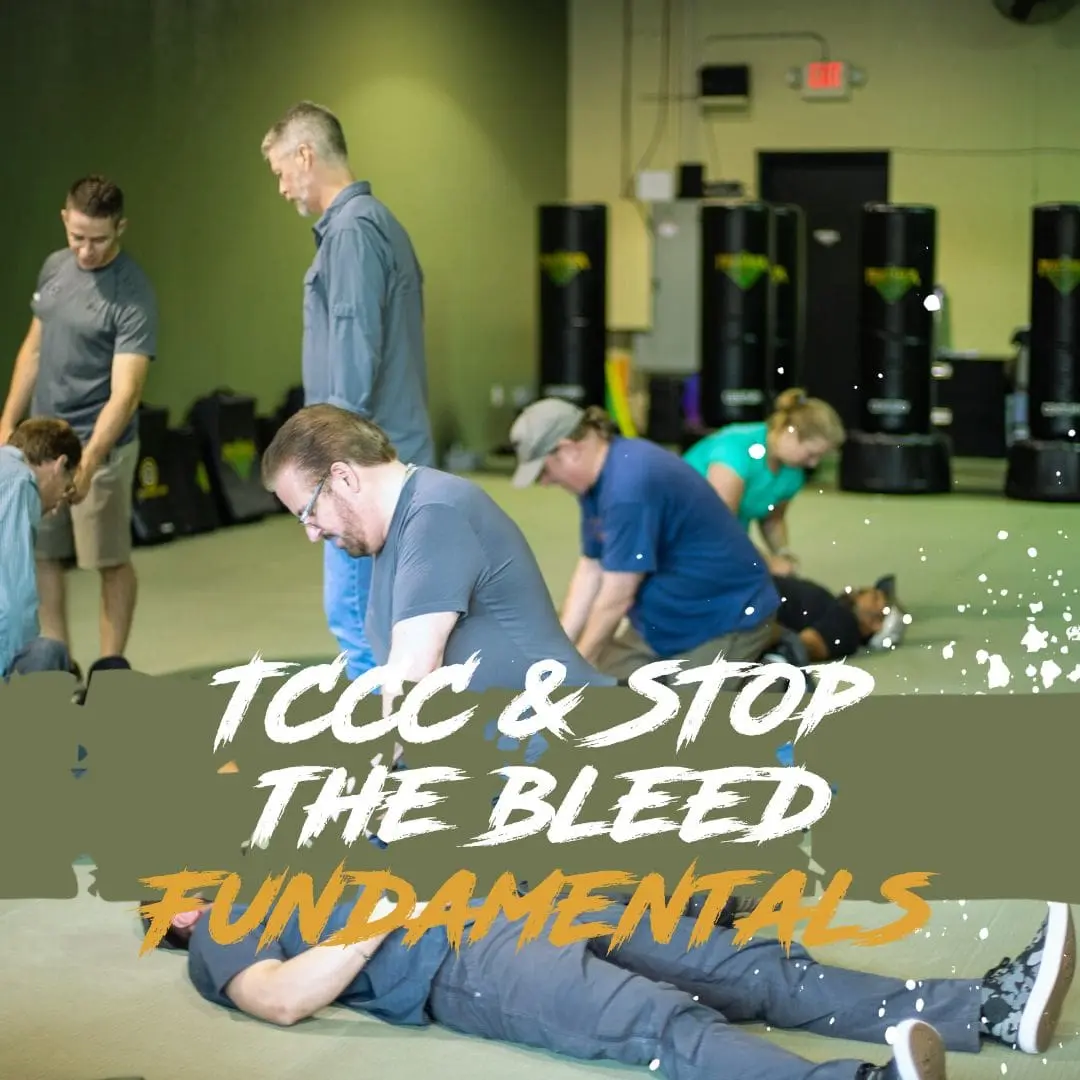The Trauma care fundamentals course is an introductory course to Tactical Combat Casualty Care (TCCC). This course is designed to teach students the basics of stop the bleed curriculum. Join us for a course that goes beyond the basics, providing the essential tools to confidently respond to life-threatening situations and make a difference when it matters most.

I. TCCC, where it came from, why it’s important, and how to check your instructor’s work and how to stay up to date.
II. Should I stay or should I go? Understanding Care Under Fire, Field Care, Evacuation Care.
III. Hemorrhage Control
A. Anatomy of a bleed.
B. What makes a good tourniquet?
1. Commercial tourniquet application.
2. Improvised tourniquet and their applications
C. Pressure points and positioning.
D. Pressure Dressings
E. Hemostatic Dressings
IV. Brain and bowel considerations.
V. Pneumothorax and its complications and treatment.
VI. Traumatic airway compromise recognition and treatment.
I. Evacuation Considerations/ Communication (UTM validation for Care Under Fire)
II. Mass triage.
III. Hemorrhage control validation (UTM validation for Care Under Fire)
IV. Complex scenario instruction (Field Care and Evacuation Care)
V. Complex scenario validation (UTM validation)
Shooting Gear
Personal Gear